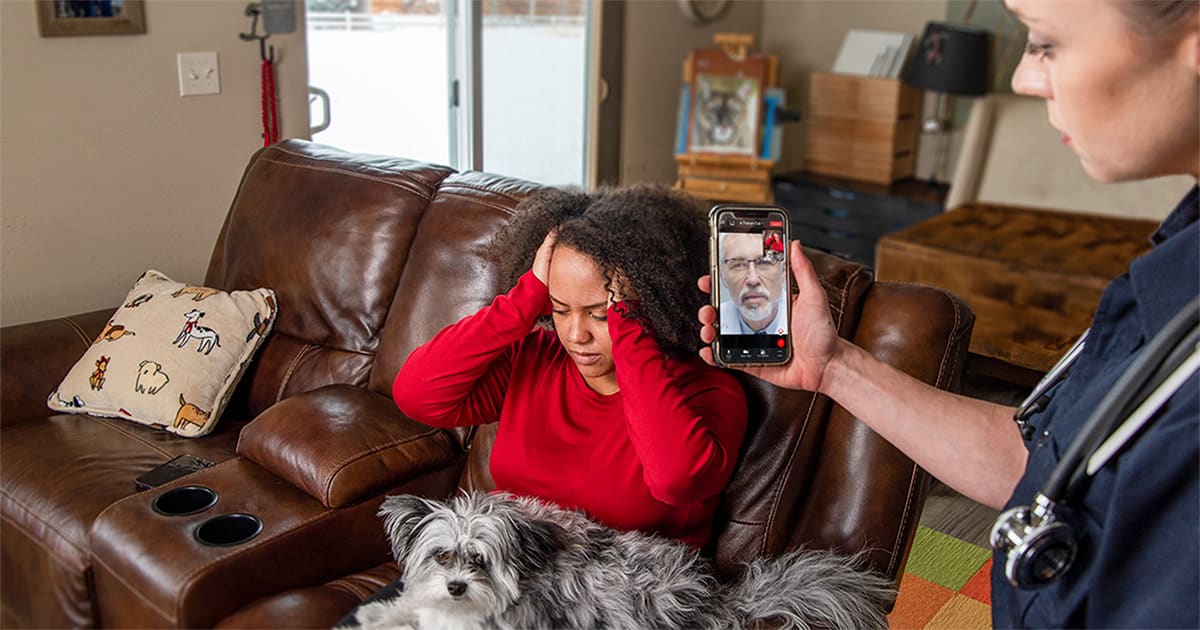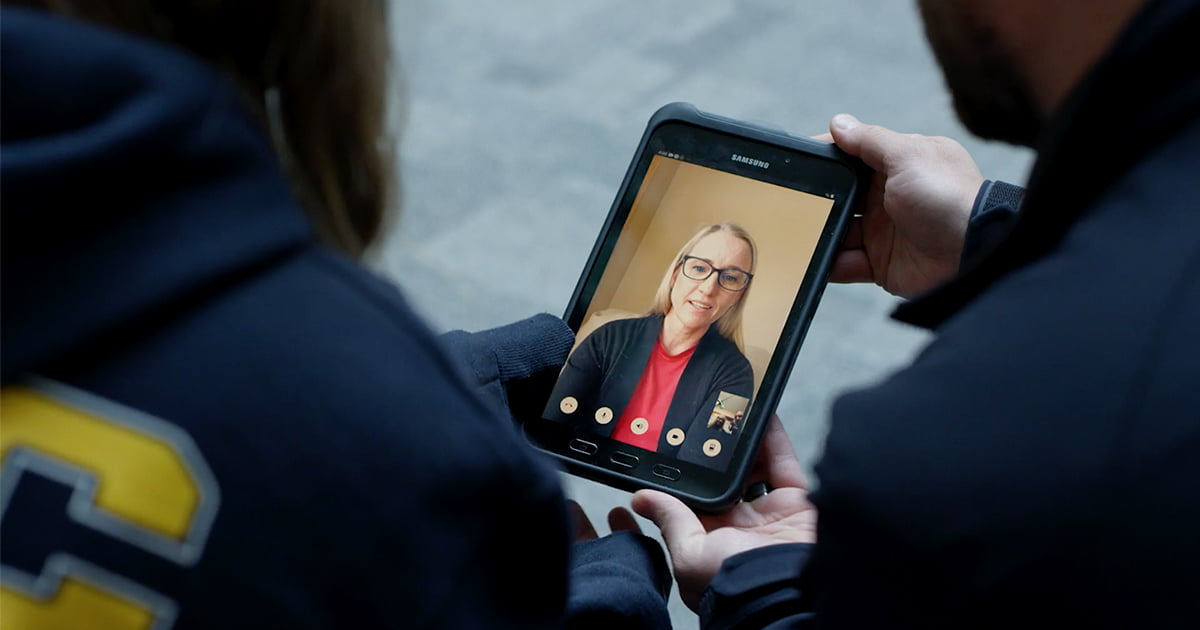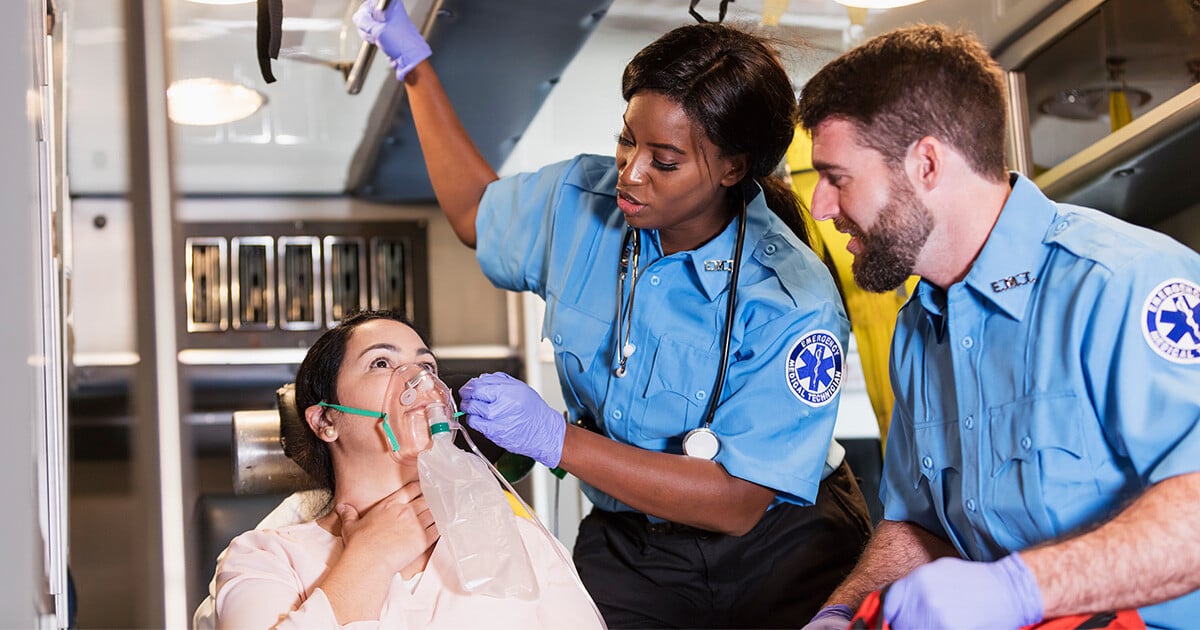Pulsara Around the World - April 2025
March Recap A New Integration: Improving Data Management, Streamlining Workflows, and Improving Care CoordinationOnly a few days ago, we announced...
3 min read
 Team Pulsara
:
Mar 22, 2022
Team Pulsara
:
Mar 22, 2022

The newly expanded platform allows first responders and healthcare providers to support behavioral health patients via telehealth and streamlined transfers.
Bozeman, Mont., March 22, 2022 — Pulsara, the leading mobile telehealth, communication, and logistics platform that unites healthcare teams and technologies across organizations during dynamic events, recently released a dedicated behavioral health patient type allowing EMS crews, hospital teams, and other healthcare organizations to better support behavioral health patients. EMS or other first responders can now directly connect with behavioral health facilities, teams, or individuals through live group video and audio calling to receive help in determining the most appropriate treatment for the patient. For teams working with patients who need enhanced behavioral health services, this new patient type helps streamline placement to a more appropriate facility. Utilizing this new functionality on the Pulsara platform, clinicians can quickly facilitate appropriate real-time treatment for patients, help relieve overcrowded healthcare facilities, and save time, money, and resources by avoiding unnecessary and extended ED visits.
“The fact that Pulsara can be used both for daily public safety and hospital care coordination and for behavioral health community resources all on one platform is invaluable,” said Josh Jordan, former flight paramedic, firefighter, and current Strategic Accounts Manager at Pulsara. “The best part is that not only does the platform help divert behavioral health patients from an already overcrowded ED, but it also makes behavioral healthcare more accessible to all communities, whether rural or urban.”
Pulsara is a HIPAA-compliant, secure, easy-to-use platform that unites the entire care team—even if they are in different departments or organizations—for any patient condition or event. By replacing multiple phone calls, radio reports, faxes, and pagers with one unified patient channel, Pulsara enables more efficient patient care from start to finish. This new behavioral health patient type further expands the power of the platform.
People experiencing a behavioral health crisis too often end up in the ED or even jail when what they really need are resources such as crisis counselors. During these events, Pulsara helps first responders and hospital clinicians connect patients to the appropriate level of care when and where they need it, fostering support and efficiency in both patient care and in the utilization of resources.

With just a few taps, community paramedics or other clinicians can quickly assemble a team on the go based on the situation's demands, including expert mental health providers, emergency medicine physicians, and medical control, all in one secure mobile patient channel. From there, first responders can hold a live group video call with the behavioral health team to determine the best course of treatment for their patients. Specialists can connect with patients to perform a psychological evaluation or conduct a crisis counseling session via telehealth, making healthcare more accessible for marginalized populations and anyone in need of behavioral healthcare.
For patients who are already at the ED or hospital and need more specialized behavioral health resources elsewhere, Pulsara’s behavioral health patient type helps clinicians find the most appropriate placement. Pulsara enables communication on a unified patient channel across organizations, streamlining and connecting patient care between each clinician caring for that patient and the current and receiving facility.
Pulsara for behavioral health brings additional benefits to EMS and hospital teams, as well: patients who need a psychiatric bed, for example, can bypass the ED, saving valuable time and resources. Minor cases can also be de-escalated, enabling EMS teams to treat in place when possible; patients avoid a trip to the ER, and EMS and hospital resources are preserved for more critical patients.
“Improving the lives of people in need and those who serve them is our purpose at Pulsara,” shared Dr. James Woodson, Founder and CEO of Pulsara. “The value of Pulsara’s new behavioral health patient type extends across the entire healthcare continuum, from EMS and emergency departments to the crisis counselors and physicians specializing in behavioral healthcare. We are thrilled to be adding this new functionality in support of both patients and caregivers.”
To learn more about how Pulsara’s behavioral health patient type can help your organization, visit www.pulsara.com/behavioral-health.
About Pulsara
It’s about people. During the most critical moments in life, Pulsara unites distributed teams and fragmented technologies as dynamic events evolve on a scalable communications and logistics platform, improving the lives of people in need and those who serve them.
We envision a world where needless suffering is eliminated because communities can unite and communicate without friction. Pulsara customers report average reductions in treatment times of between 22% and 68%. For more information, visit www.pulsara.com.
###
Press Contact:
Hannah Ostrem
Senior Director of Marketing, Pulsara
Hannah.Ostrem@pulsara.com
(877) 903-5642

March Recap A New Integration: Improving Data Management, Streamlining Workflows, and Improving Care CoordinationOnly a few days ago, we announced...

EMS providers and industry stakeholders can now improve data management, streamline workflows, and reduce the risk of double documentation through...

NORTH POLE, AK — It’s an open secret that there’s a lot of activity going on at the North Pole this time of year. Between checking the list twice,...